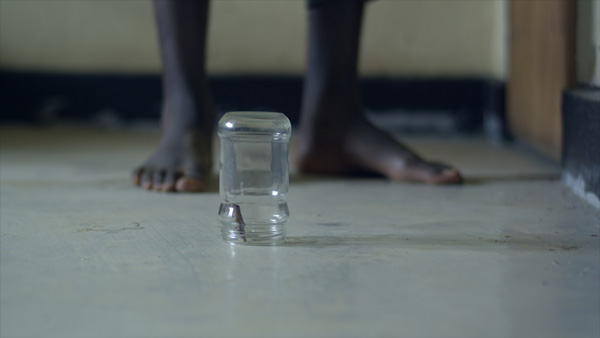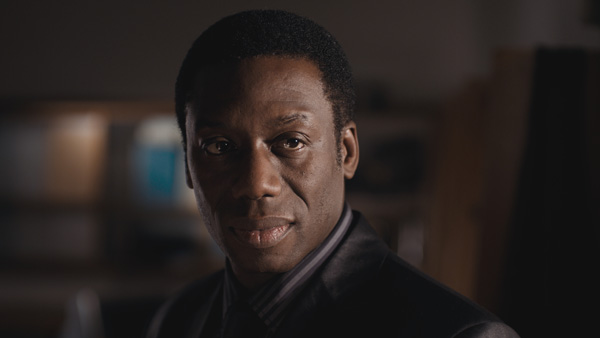When Don Mattera says ‘Memory is the weapon’, it is often assumed that this is an optimistic statement, that the ability to remember is an affirmation of the positive. When in actual fact the contrary remains true, the capacity to remember is the most important aspect in any form of trauma whether communal or personal.
In Kivu Ruhorahoza’s Grey Matter, memory and its contextual genesis is placed under an interesting juxtaposition. Balthazar is a young Rwandan filmmaker, with a rough around the edges, self-righteous persona. We track him in the early parts of the film as he tries to make his own production. Balthazar finds himself a victim of that common African (and I use the word loosely here) problem of being rejected by the financiers, the money men and the so called gatekeepers who are also supposedly the custodians of a national cinematic identity.

The trouble however with this first portion of Grey matter is not the intended message nor is it the context in which it is delivered, rather it is that Balthazar by observation is not a believable character. He is almost too determined making it hard for the audience to break through the wall of his own self-assurance to love him and identify with his situation. For instance at the beginning of the film he says if he get funds he begins production in six days and if he doesn’t he will still begin production in six days. As Balthazar lies to his actors and goes on with rehearsals and puts his parents’ car up as collateral for a loan he never stops to consider the ramifications of his actions.
What Ruhorahoza though this character is saying is that in order to be a filmmaker on the African continent you have to become a creature without empathy and this is contention that I find hard to believe.


In the most significant portion of the film however, Grey Matter morphs into a more meditative setting. As Balthazar imagines how his film would turn out, the line between what is real and imaginary becomes minute and blurry. Here Ruhorahoza has made a film within a film. In this second act narrative communal displacement is framed in an almost existentialist setting.
Here Grey matter becomes a cinematic meditation on the Rwandan genocide.
We see a young woman and man who have both been committed into an institution, she having been a victim of hate crimes and he a perpetrator. It is worth noting that cinematic communication in the abstract is a finite art. There are only so many things you can get away with before straying into that morose territory of the pretentious. Here Ruhorahoza uses memory and its repetitive structure to showcase how the act of remembering can drive one to insanity. We see the man as he has flashes of burning bodies, he tries to save them but all he can do is pour water over empty spaces.
Grey Matter is a film that is also largely concerned with reconciliation between victims and perpetrators that are forced to come to terms with each other’s grief as they occupy the same spaces.
This is particularly significant considering so many Rwandan’s have been burdened with the tasking of simply moving on. Ruhorahoza has handled this second act with delicacy and showcases the imperfections of each side. What Grey Matter says to us is that the individual and his isolation and presence in their own mind is the only constant and that regardless of how popular socio-political rhetoric frameworks the era, mapping out that individual loss remains a significant part of the story and must never be separated from the political.








